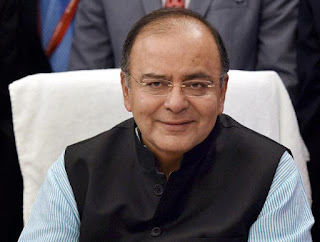 Honourable Finance Minister Shri.Arun Jaitely had spoken about the possible impact of 7th CPC recommendations in Parliament.
Honourable Finance Minister Shri.Arun Jaitely had spoken about the possible impact of 7th CPC recommendations in Parliament.
The Speech is critically reviewed by Comrade Elangovan of DREU.
I am reproducing the comments of Comrade Elangovan for the consideration of our members:
7TH CPC WIL INCREASE CENTRAL GOVERNMENT PAY ONLY BY 15%. SHOULD WE ACCEPT?
R.ELANGOVAN,
WORKING PRESIDENT, DREU
1. The Medium Term Expenditure Framework statement has not yet been uploaded in Finance Ministry’s website. However I have taken the figures provided by print media including The Hindu. As per their statement the expenditure on salaries will rise by 9.56% in the fiscal 2015-16 as a result of 7th CPC implementation over the normal estimated expenditure in the 2015-16 budget to Rs.100619 crores. This means that the expenditure projected was Rs.91,839cr which if increased by 9.56% becomes Rs.100619 crores.



